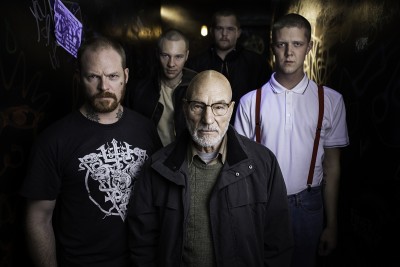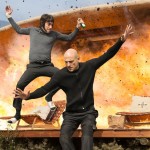
“Green Room” is a thriller about a punk rock band held hostage by a band of Nazi skinheads during a concert after they stumble upon something they were not supposed to see. The film is written and directed by indie filmmaker Jeremy Saulnier and stars Patrick Stewart and Anton Yelchin.
Saulnier faced an interesting rise to success after he had some trouble breaking into the industry.
“The only way I could break in was on my own terms with my own money because I could not translate my ideas and pitch them to producers,” Saulnier said in a roundtable interview with The Daily Free Press.
After years of making corporate videos, Saulnier decided that he needed to take hold of his own future.
“I never even thought I was a writer,” he said. “I just was not breaking through, and I needed to generate material so that I could direct it.”
Although “Green Room” may seem like a horror movie, Saulnier said he originally wrote it as a war film between civilians and soldiers, and he drew from his own life experiences in creating the story.
“I was a part of the hardcore punk scene back in the ’90s, and I just think it’s a really cool world to explore,” he said. “I wanted to set a siege film during a live concert. That’s very exciting to me. I didn’t want to get too much into ideology, but I wanted to harness the energy and exploit the aesthetic of it all. It’s visually rich and raw.”
The movie is very contained, with most of the action taking place within the green room over the course of one day. This proved difficult because they had to build the entire venue from scratch.
“When I wrote it, I didn’t realize that every hallway and door was already predetermined,” Saulnier said. “If we didn’t adhere to the diagram I had in my head, it would disrupt the entire script.”
Saulnier noted that making a movie that spans such a short period of time was a difficult feat.
“It’s a lot of technical work and coverage to maintain continuity,” he said. “Shooting in such a confined scenario, if you’re in the room and someone dies and the body drops, wherever that body drops is where it is for the rest of the movie. It has lots of impacts that you don’t see coming, and you have to be flexible.”
Luckily, Saulnier had the opportunity to work with seasoned actors, such as Stewart, who made this process easier.
“It takes a lot of endurance and emotional investment from the actors — I put them through the ringer,” he said. “The great thing was that the actors were so invested that they were their own caretakers. They preserved integrity and emotional gravity from take to take.”
Saulnier’s style of filmmaking is centered on being as realistic as possible. He said he stressed authenticity throughout the process, even when it was difficult for him as a writer.
“I just really enjoy actual humans on screen and was governed by what I thought they would actually do,” he said. “I didn’t allow myself to know who would survive, and I didn’t know when people would die. It became traumatic to write when someone would die.”
Because of the extreme realism, Saulnier said he hopes for the audience to be completely engrossed in the characters and what they are doing.
“The characters had to stay grounded, and I felt that it was my duty to inhabit each character, whether it be a Nazi skinhead of a punk band member,” he said. “It was fun because when the audience really inhabits the character, they feel so exposed and so vulnerable. You feel very off the map, and it gets real terrifying.”
Saulnier is considered an independent filmmaker because he creates his movies from writing to directing, without the influence of producers or studios.
“For better or worse, it’s a pure vision, and that’s very hard to come by,” he said. “I trust no matter what the vision is, if it’s singular, it will stand out. It might get canned or might get embraced, but it’s an anomaly. It’s not normalized and filtered and made to hit every formula there is.”
From breaking into the industry on his own and making a name for himself, Saulnier had some advice to share about the industry.
“The discipline isn’t when to make a movie, it’s when not to make a movie,” he said. “My advice is just don’t stop. You don’t have to win. You just have to stay on the track. It’s daunting and takes a lot of endurance.”




